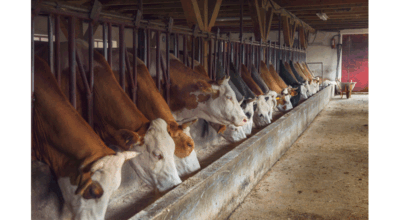American Farm Bureau sends farm bill to Capitol Hill
Published 10:18 am Wednesday, April 17, 2013
WASHINGTON—The American Farm Bureau Federation sent a federal farm bill proposal to Congress April 8 that offers risk management and safety net tools to benefit a wide range of farms while saving $23 billion compared to the cost of continuing the current program.
“There is far less money this year than last with which to secure an adequate safety net for the many family-owned farms that make up the bulk of America’s agricultural system,” said AFBF President Bob Stallman. “Last year, Congress merely extended the old 2008 Farm Bill until Sept. 30 of this year. Now, while unfortunately we have less money to work with, it is vital that Congress complete a new five-year farm bill this year. Doing so is in the economic interest of our entire nation.”
The Farm Bureau proposal offers farmers a choice of program options; protects and strengthens the federal crop insurance program and does not reduce its funding; is designed to encourage farmers to follow market signals rather than making planting decisions in anticipation of government payments; refrains from basing any program on the cost of production; and ensures equity across program commodities.
“Farm policy should provide a strong and effective safety net and viable risk management program for farmers that do not guarantee a profit but, instead, protect them from catastrophic occurrences,” Stallman said. “We also want to ensure that terms of our farm programs do not affect a farmer’s decision of which crop to plant. The program must comply with our World Trade Organization agreements.”
Farm Bureau supports a program that reduces complexity while allowing producers increased flexibility to plant in response to market demand. The organization also supports a safety net that allows farmers to purchase insurance products—delivered by private crop insurance companies—to further protect individual risk.
“We think it’s important to come up with something that will put some money toward deficit reduction, just like we did last year, and yet to provide a safety net over the next five years,” said AFBF farm policy specialist Mary Kay Thatcher.
“So if we have another drought or a flood or a hurricane, there would be programs in place to provide a safety net, where farmers would not be forced to go out of business because of a weather disaster that they had no control over.”
The Senate Agriculture Committee will likely begin markup of a comprehensive, long-term farm bill this month, while the House Ag Committee is considering moving a bill after the Senate committee completes its markup.





